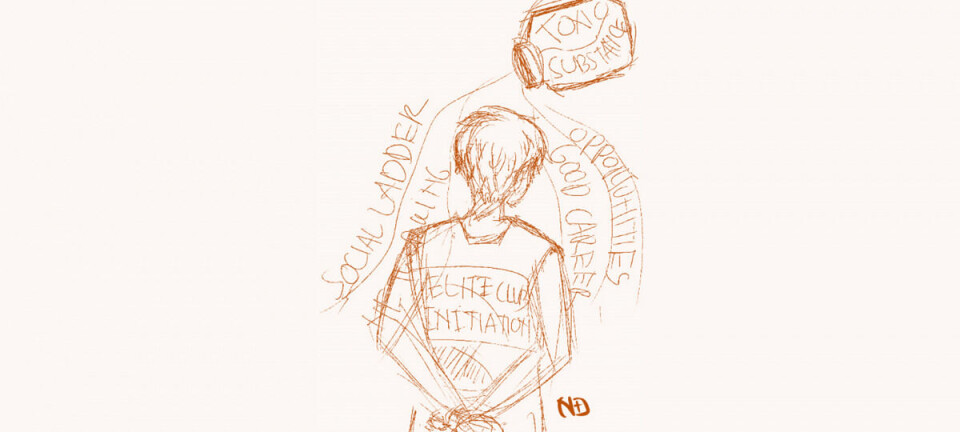article> Opinion/Politics
Student Initiations: a Danger to Students?

Student initiations, or baptisms as they are known here, are often an essential part of joining student organisations in which new prospective members undergo weird and even degrading activities...
by David Abidaoud
Contributing Writer
Last year, a KU Leuven student met his untimely demise at an initiation for a student organization which has since been disbanded.
University student societies are a central part of university life all around the world - practically all universities find themselves containing these associations. They tend to be of varying composition, with some including members from a single faculty within the university and others being more socially oriented, containing people of a particular walk of life, while others are more academic, dealing with sharing knowledge. Most people are no strangers to the notorious debauchery that happens during the initiation ceremonies of many of these associations. Most of you have probably seen students crawling on their bellies in the streets of our own city, covered in paint and followed by a small group of seniors, with one of them often barking orders at the crawlers.

Student initiations are a tradition that has been going on for decades, at universities all over the globe.
These initiations are a common sight in the first weeks and months of the academic year. New students are always on the lookout for opportunities to set down social roots and make new friends. Not only this, but many student organizations are also known for being valuable sources of social capital outside of the educational system, often providing opportunities for professional advancement through the alumni and a strong network as a result of the time spent together with other students involved. A prerequisite to joining such an organization is the initiation. While most students are already aware of the nature of the experience they will have to endure, many choose to go forward with it anyway.
Our University, KU Leuven, has a strange relationship with these organizations, which has evolved over the past few years. Following the unfortunate incident where a student attempting to join an association consumed a fatal amount of fish oil - raising the saline in his blood to an unsafe level - the university released a charter, demanding all student organizations within the city conform to the university’s requirements. One of these requirements is the prohibition of mandatory alcohol consumption during initiations. The charter aims to open up the student organizations to greater scrutiny by the university and ensure safer practices throughout the operation of the student organizations.

The giant bug impaled on a 75-feet high needle in Ladeuzeplein is a common place where huge initiations take place annually.
This charter should have been signed by all student organizations, however this was ultimately not the case.
There are a number of elite “clubs” here at KU Leuven which do not rely on the university for financing, as they have extensive alumni networks that help support their operations. These clubs are listed in the “codex”, a green booklet containing a comprehensive list of these organizations. They almost unanimously refused to sign the charter and, in response, sent back their own amended version, within which clauses put in place by the university to monitor club activities were almost entirely removed. The university, naturally, could not accept such an action and refused to sign their amended version. To this day, no changes have come about within the operation of the existing clubs and there is nothing on the horizon regarding potential changes.
Is it right for student organizations to potentially endanger their members during their initiation processes? Should the university have influence over the operation of organizations outside of their legislative and executive reach? At the end of the day, the only entity that can determine whether or not a student experiences any of the things described above is the student themselves. Choose wisely!





